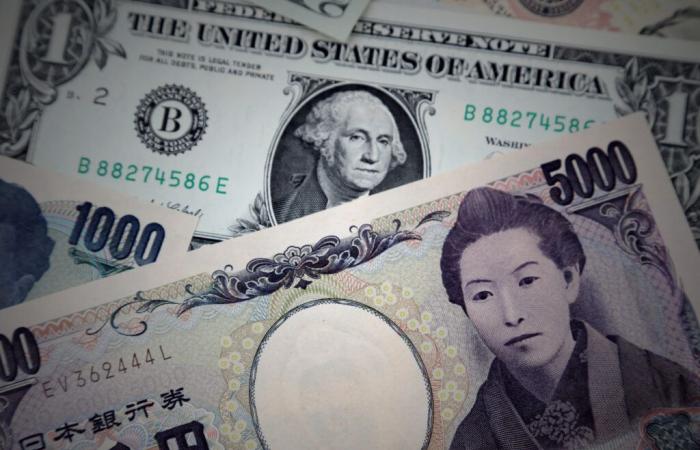The Japanese yen continued to weaken against a basket of currencies on Monday, hitting a near four-decade low against the U.S. dollar after data showed Japan’s gross domestic product (GDP) contracted more than expected in the opening quarter.
Are you looking for signals and alerts from professional traders? Sign up for Invezz Signals™ for FREE. Takes 2 minutes.
This development has apparently dampened hopes of a potential rate hike by the Bank of Japan.
Dollar, Euro and Pound Gain Significant Ground
Copy link to section
The dollar gained 0.31% against the Japanese yen, trading at 161.3765 as of 8:40 a.m. ET, its strongest level since December 1986. At the same time, the euro rose 0.58% against the currency Japanese, changing hands at 173.3685, its maximum. point since 1992 in the aftermath of the early elections in France.
The pound appreciated 0.44% against the yen, hitting 204.3490, its highest level since 2008.
Market Reactions and Implications
Copy link to section
The Japanese economy is struggling with stagnation and recent GDP data further underlines the challenges. The contraction in GDP has cast doubt on the country’s economic recovery, influencing the trend of the yen.
Analysts believe the Bank of Japan may now face increased pressure to maintain its ultra-loose monetary policy, which could keep the yen under pressure for a prolonged period.
The broader implications of this weakening of the yen are multiple. Import-dependent sectors in Japan could experience increased costs, potentially impacting consumer prices and overall economic stability.
Conversely, Japanese exporters may benefit from a weaker yen, as their products become more competitive on the international market.
Investors are closely watching the Bank of Japan’s next moves, as any indication of policy changes could have a significant impact on currency markets. For now, the yen’s decline reflects ongoing economic uncertainties and the complex interplay of global market forces.
(This is a developing story. More input will be added soon.)
This article was translated from English with the help of AI tools, and then reviewed by a local translator.
Ad
Looking for easy-to-follow cryptocurrency, forex and stock trading signals? Simplify your trading process by copying professional traders from our team. Consistent results. Sign up with Invezz Signals™ today.



